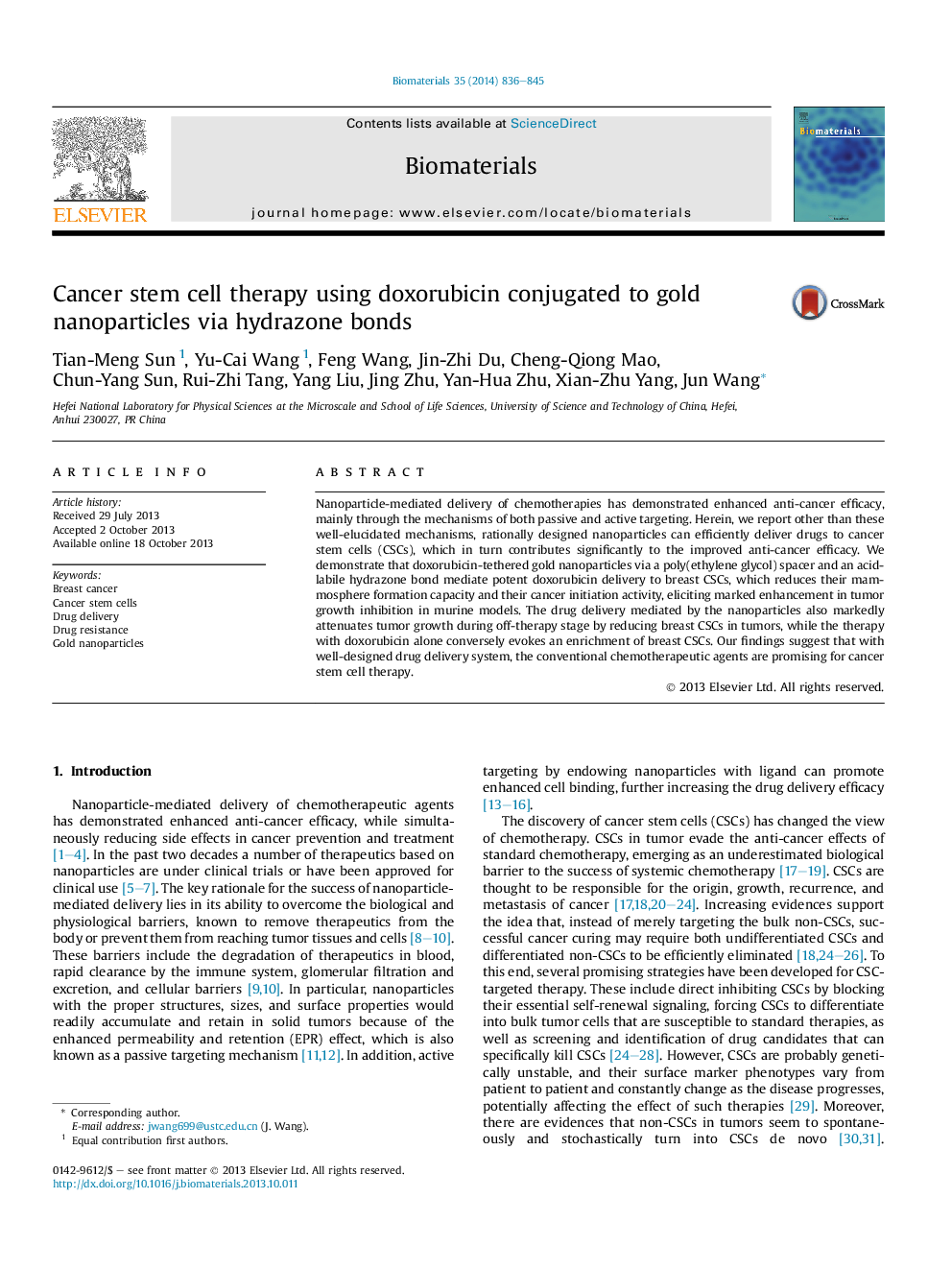| Article ID | Journal | Published Year | Pages | File Type |
|---|---|---|---|---|
| 10227799 | Biomaterials | 2014 | 10 Pages |
Abstract
Nanoparticle-mediated delivery of chemotherapies has demonstrated enhanced anti-cancer efficacy, mainly through the mechanisms of both passive and active targeting. Herein, we report other than these well-elucidated mechanisms, rationally designed nanoparticles can efficiently deliver drugs to cancer stem cells (CSCs), which in turn contributes significantly to the improved anti-cancer efficacy. We demonstrate that doxorubicin-tethered gold nanoparticles via a poly(ethylene glycol) spacer and an acid-labile hydrazone bond mediate potent doxorubicin delivery to breast CSCs, which reduces their mammosphere formation capacity and their cancer initiation activity, eliciting marked enhancement in tumor growth inhibition in murine models. The drug delivery mediated by the nanoparticles also markedly attenuates tumor growth during off-therapy stage by reducing breast CSCs in tumors, while the therapy with doxorubicin alone conversely evokes an enrichment of breast CSCs. Our findings suggest that with well-designed drug delivery system, the conventional chemotherapeutic agents are promising for cancer stem cell therapy.
Related Topics
Physical Sciences and Engineering
Chemical Engineering
Bioengineering
Authors
Tian-Meng Sun, Yu-Cai Wang, Feng Wang, Jin-Zhi Du, Cheng-Qiong Mao, Chun-Yang Sun, Rui-Zhi Tang, Yang Liu, Jing Zhu, Yan-Hua Zhu, Xian-Zhu Yang, Jun Wang,
